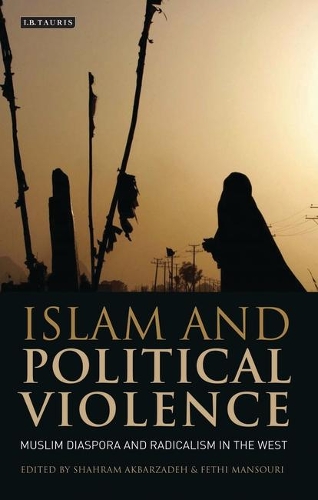
Islam and Political Violence: Muslim Diaspora and Radicalism in the West
(Paperback)
Publishing Details
Islam and Political Violence: Muslim Diaspora and Radicalism in the West
By (Author) Shahram Akbarzadeh
By (author) Fethi Mansouri
Bloomsbury Publishing PLC
I.B. Tauris
30th June 2010
United Kingdom
Classifications
Professional and Scholarly
Non Fiction
Terrorism, armed struggle
305.697
Physical Properties
Paperback
272
Width 138mm, Height 216mm
Description
How do we engage with the pressing challenges of xenophobia, radicalism and security in the age of the 'war on terror' The widely felt sense of insecurity in the West is shared by Muslims both within and outside Western societies. Growing Islamic militancy and resulting increased security measures by Western powers have contributed to a pervasive sense among Muslims of being under attack (both physically and culturally). "Islam and Political Violence" brings together the current debate on the uneasy and potentially mutually destructive relationship between the Muslim world and the West and argues we are on a dangerous trajectory, strengthening dichotomous notions of the divide between the West and the Muslim world.
Reviews
'Judiciously blending theoretical discussions with the analysis of manifestations of Islamic sentiment in important parts of the world, this book offers a wealth of instructive material for both specialist and general readers.' - Professor William Maley, Director, Asia-Pacific College of Diplomacy, Australian National University, Canberra
Author Bio
Shahram Akbarzadeh is Associate Professor of Islamic Studies and Deputy Director of the National Centre of Excellence for Islamic Studies, University of Melbourne. He researches and is widely published in the areas of Islamic radicalism, the politics of Central Asia and the Middle East, and US relations with the Muslim world. Fethi Mansouri is Professor in Middle Eastern Studies at Deakin University. He is Founding Convenor of the Australia Middle East Research Forum and co-author of 'Identity, Education and Belonging: Arab and Muslim Youth in Contemporary Australia' and 'Lives in Limbo: Voices of Refugees under Temporary Protection' and the editor of 'Australia and the Middle East: A Front Line Relationship'.
